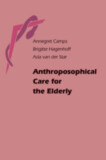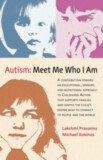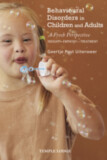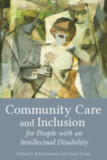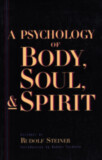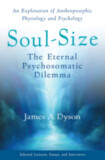Good Care
Ethics and Methodology: An Anthroposophical Approach to Child and Youth Psychiatry and Care of Persons with Developmental Disabilities
Edited by Erik W. Baars
Translated by Philip Mees
- Publisher
Temple Lodge Publishing - Published
9th July - ISBN 9781915776150
- Language English
- Pages 236 pp.
- Size 6" x 9.25"
What are the hallmarks of anthroposophic caregiving methodology that are needed to provide “good care”?
In recent decades, healthcare has undergone a transformation. Clients demand good care, and providers are expected to deliver it. Care and treatment methods are made explicit, quality standards are set, and cyclical evaluations are determined, leading to a goal of continuous optimization.
In special education and social therapy for people with developmental disabilities and mental health issues, an effective and high-quality caregiving methodology based on Anthroposophy has been developed over the past century and is currently practiced in dozens of countries around the world. Developed from research by Rudolf Steiner and the experiences of numerous coworkers over decades, this methodology is described alongside its scientific basis and ethical principles. Good Care is an ideal handbook for healthcare givers, parents, and caretakers, explaining how anthroposophic care is interpreted and translated into quality daily practice.
Contributions include: “Value-based Caregiving: Ethical Premises of Anthroposophical Care for Persons with Developmental Disabilities” • “Spiritual-Psychological Aspects of Developmental Disabilities” • “The Professional Identity of the Professional Caregiver” • “The Caregiving Process from a Methodological Perspective” • “The Caregiving Methodology Scientifically Justified.”
This book is a translation from Dutch of Goede zorg: Ethische en methodische aspecten: Een antroposofische benadering van kinder- en jeugdpsychiatrie en zorg voor mensen met ontwikkelingsstoornissen (Uitgeverij Christofoor, 2005)
C O N T E N T S:
1. Introduction
2. Value-based Caregiving: Ethical Premises of Anthroposophical Care for Persons with Developmental Disabilities
Introduction
Introduction of the Three Fundamental Values
Ethical Context
Equality
Sense of Service
Spiritual Presence of Mind
Consequences: Practicing the Fundamental Values
Discussion: Professionalism between Ideal and Reality
What Is Good Care?
3. Spiritual–Psychological Aspects of Developmental Disabilities
Introduction: The Incarnation and Excarnation Processes in the Biography
Childhood and Youth
Adulthood
The Anthroposophical Concept of Health
What Might Cause a Deviation in Development?
Consequences of Developmental Disabilities for the Development of Personality
Developmental Disabilities in Relation to One-sided Tendencies and Current Development in Culture and Society
Meaning
4. The Core Elements of the Caregiving Practice
Introduction
Goals in Curative Education and Social Therapy
Living
Learning
Culture
Work
5. Professional Identity of the Professional Caregiver
Core Concepts
The Role of Attitude in the Profession
Schooling
Working Together
Similarities and Differences in the Positions of the Professional Caregiver Compared with the Parents/Family
6. The Caregiving Process from a Methodological Perspective
Dynamic Judgment-forming
The Question of the Need
Observation
Image Forming
Reaching a Diagnosis
The Care Plan in the Choice Phase
Providing the Care, Support, and Treatment
Evaluation
7. The Caregiving Methodology Scientifically Justified
Introduction
The Formal Aspects of a Method
The Validity of Individual Judgment in the Acquisition and Application of Knowledge
The Validity of a Non-atomistic, Holistic View of Reality
The Scientific Context of the Caregiving Methodology
Quality Control on Pattern Recognition in the Diagnostic Phase and Choice of Intervention
Appendices
1. Syllabus
2. Summary
Notes
Pim Blomaard
Pim Blomaard trained as a philosopher. He obtained his PhD with a dissertation on the personal relationship as the core of the guidance of people with intellectual disabilities. He worked for many years as managing director of anthroposophic assistance for the disabled. He is currently a researcher with the Free University of Amsterdam and a consultant at the Raphaëlstichting in the field of anthroposophic identity development.
Marijke Bijloo
Marijke Bijloo (1955 –2010) worked in various positions with Zonnehuizen for thirty-one years. From there, she founded the Two Streams Polyclinic in Zutphen, Netherlands. With her love for the children, her wisdom, and her expertise in the conventional and anthroposophic fields, she designed and led this outpatient clinic as head of treatment. Anthroposophy was a radiant source of inspiration for Marijke, a wealth she readily shared. Marijke knew best how to make the connection between Two Streams: outer forces and the spiritual content of working with and for the children and their environment.
Bernard Heldt
Bernard Heldt is Vice-president at ECCE, European Co-operation in anthroposophical Curative Education and Social Therapy, and eeveloping the Surinam Vocational training course 'Centrale Opleiding Agogisch Werk' (COAW) at the Vereniging van Particuliere en Sociale Instellingen (VPSI) in Paramaribo (SR)1998 - 2006. He is also supporting the development of the vocational training course 'Formacion de Pedagogía Curativa' in Buenos Aires, as well as various vocational training courses in the field of handicap care in the Netherlands, among other endeavors. He is a board member (president, treasurer or secretary of (national) church communities, developmental aid foundations (one special for Surinam), health care associations, institutes.
Willem De Koning
Willem De Koning is a former manager-director of Vrije School Mareland in Leiden South Holland.
Martin Niemeijer
Martin Niemeijer, MD (b.1947), has worked as a doctor for children with developmental problems in various settings for thirty-five years. He practiced in clinical and outpatient settings among others at the Zonnehuizen (Zeist, Netherlands) and at the Hague Childhood and Adolescent Therapeuticum. In 1981, he co-founded and became the chair of the Netherlands Association of Physicians for the Mentally Handicapped. Since 1995 he has conducted scientific research in his field of expertise, initially at the Louis Bolk Institute, later for the Alliance for Curative Education, both in the Netherlands. Since 2005, he is a researcher at the Lectorate for Anthroposophic Healthcare at the Leiden University College in the Netherlands. Martin has also been a teacher for many years. In 2015 he became a member of the Bolk's Companions Group. Various scientific publications have appeared from his hand in various journals, as well as books about children with developmental disorders and on additional medical, pedagogical, and psychological assessment methods for the work with these children.



